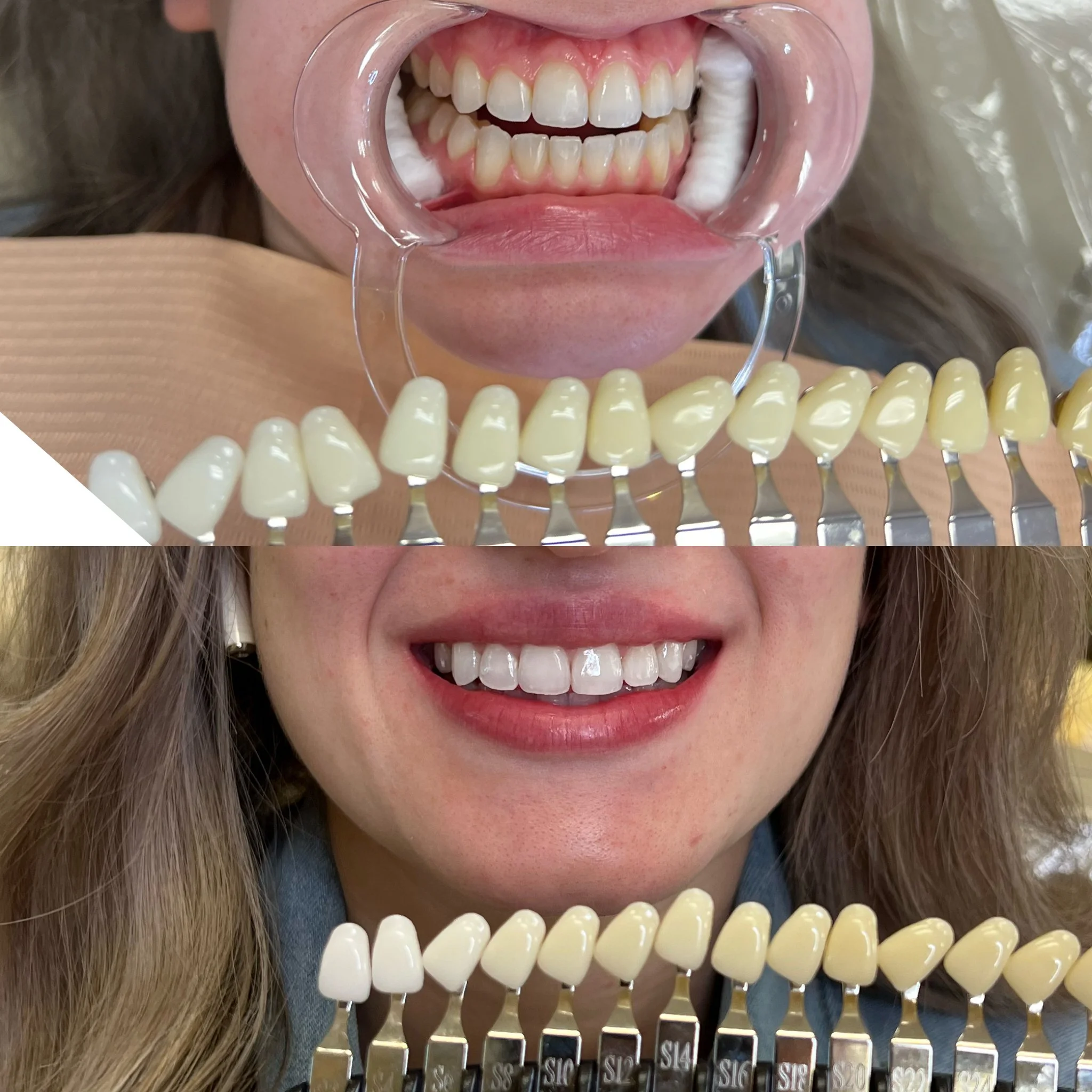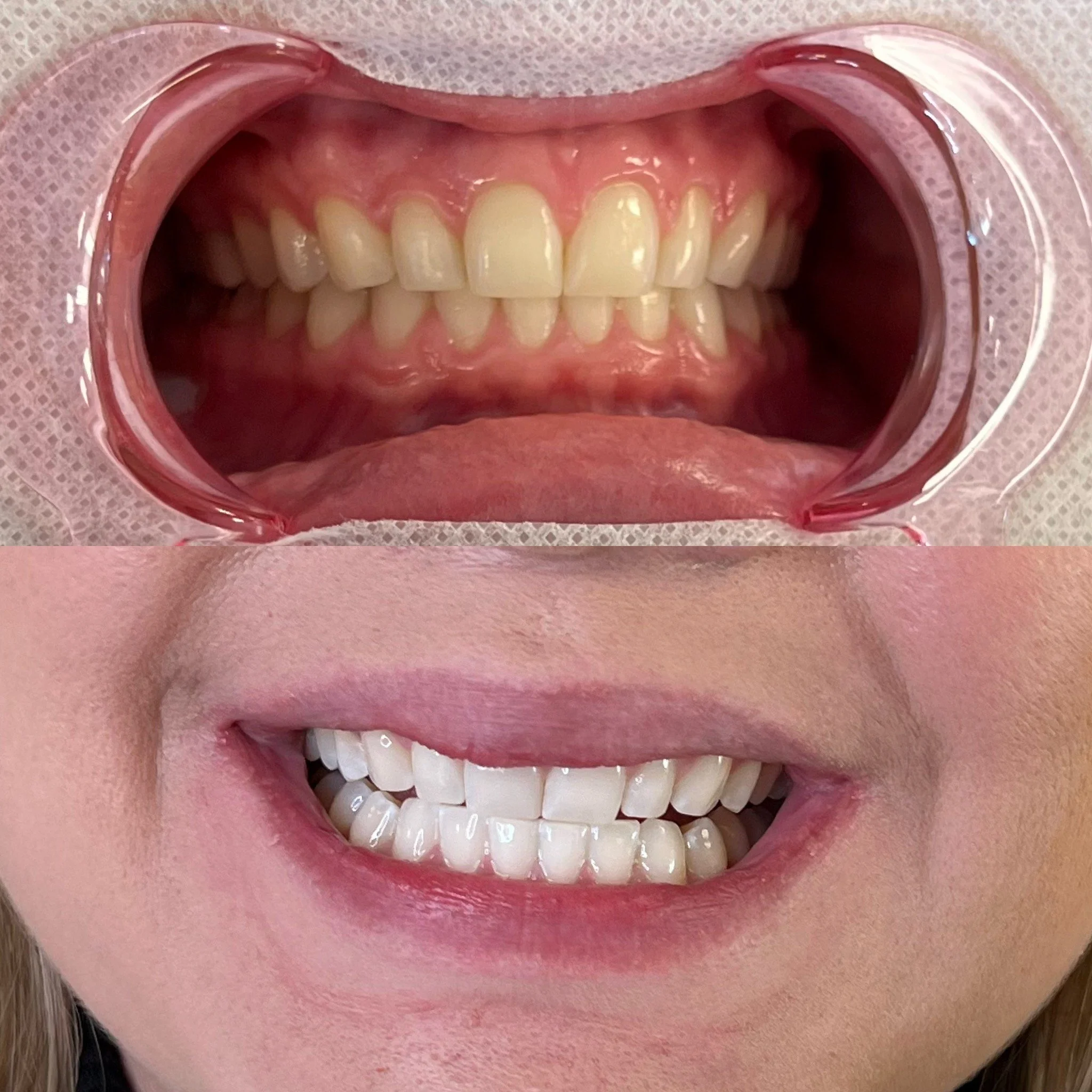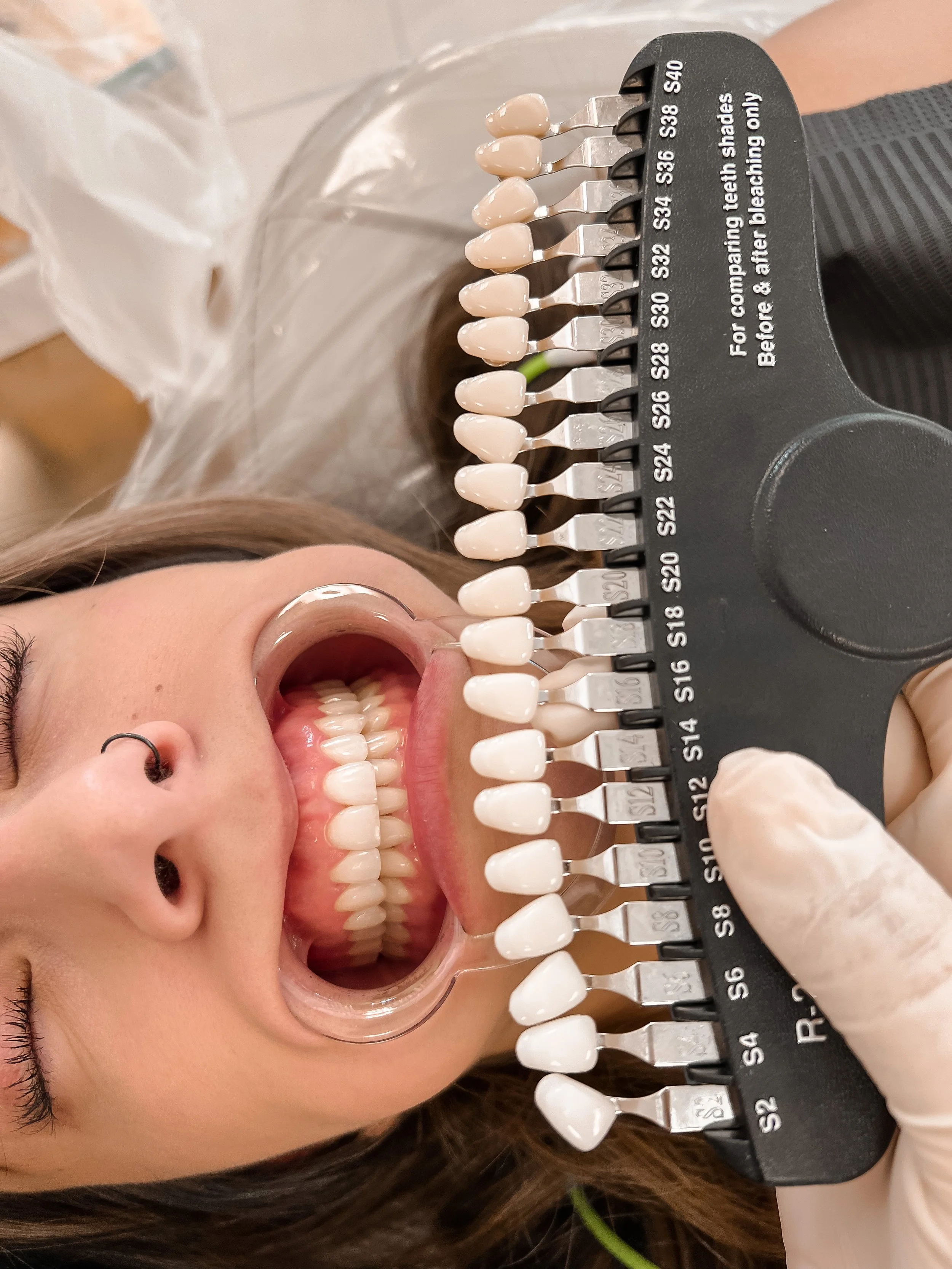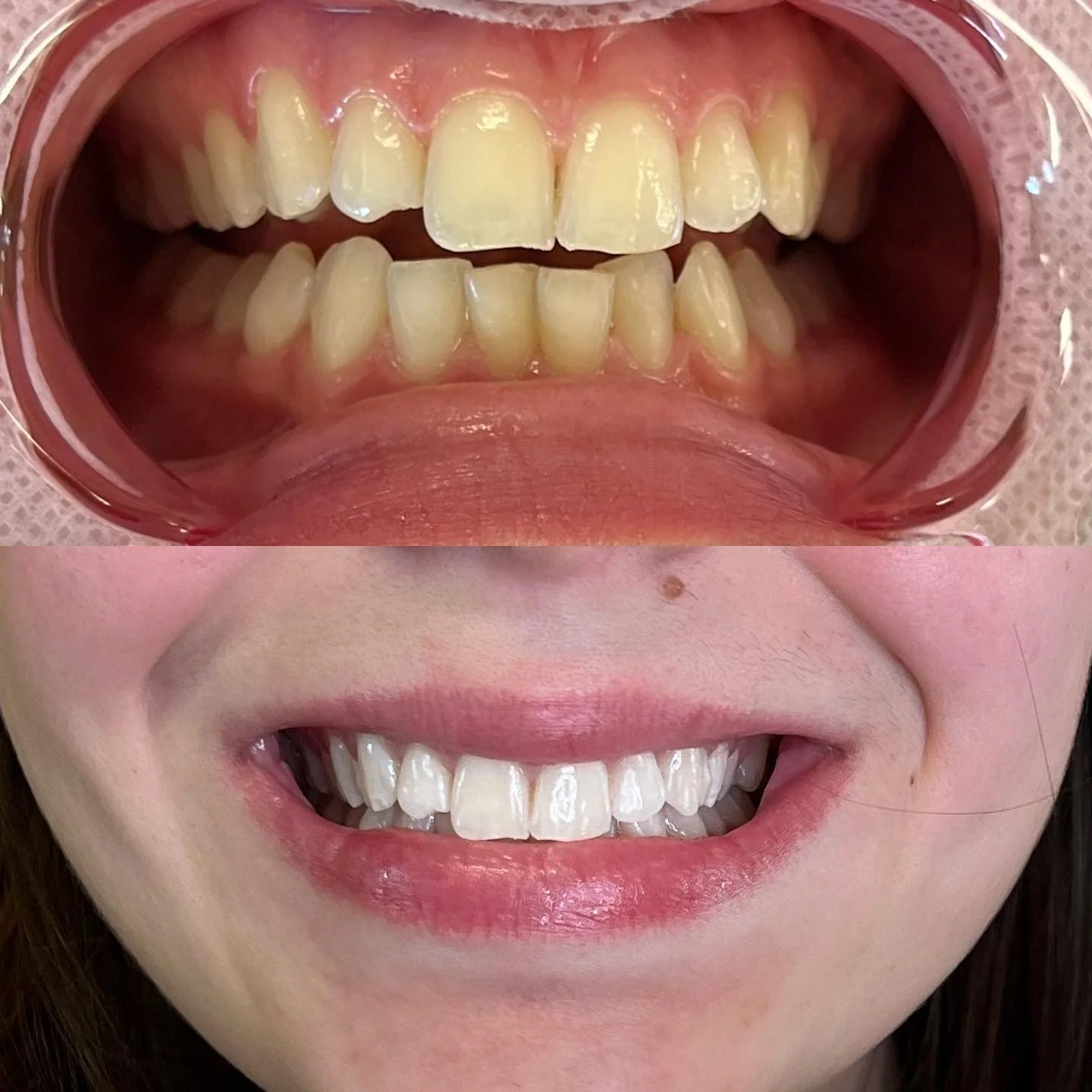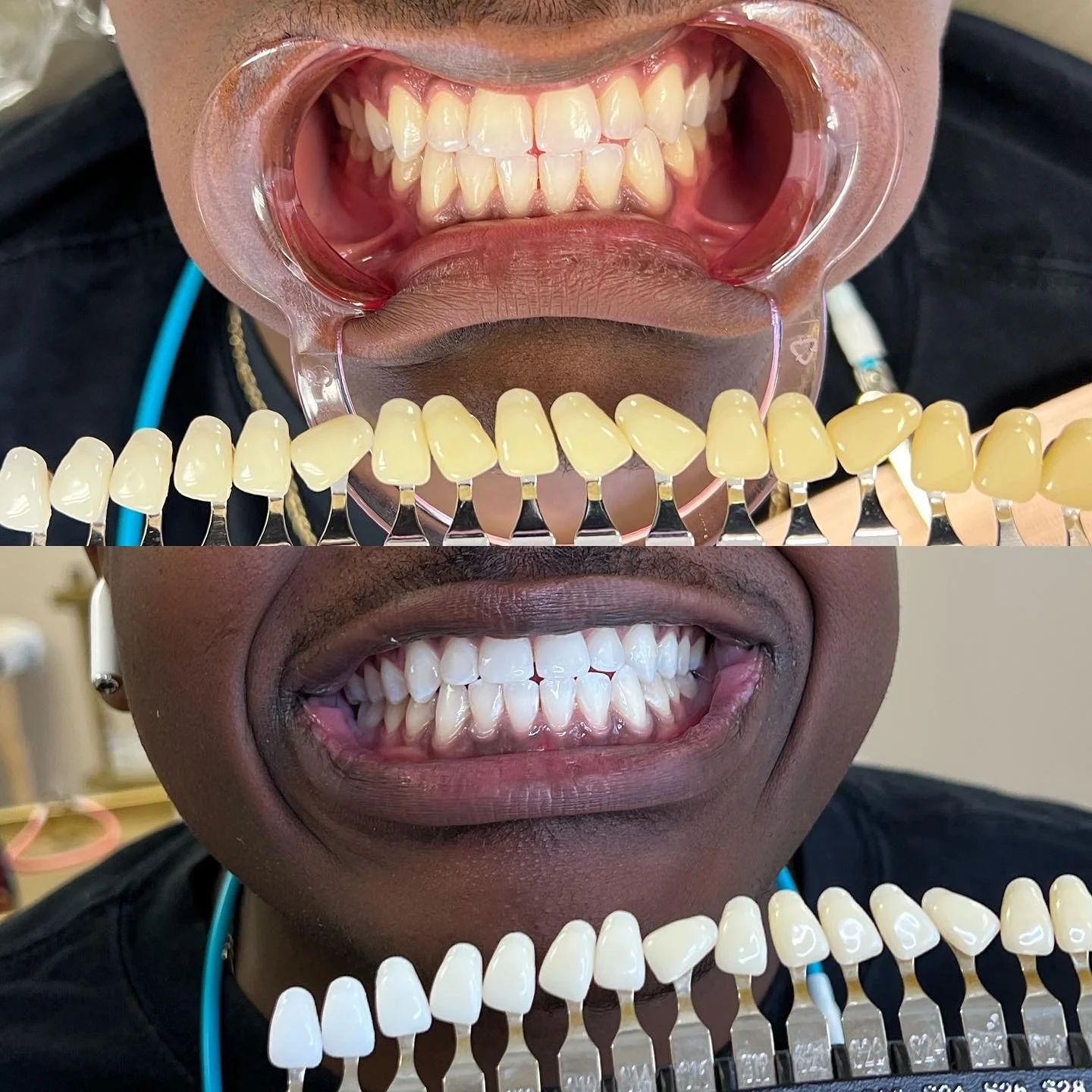A RADIANT SMILE NEVER GOES OUT OF STYLE
@BRIGHTRENU @TEETHWHITENINAZ
TEETH WHITENING SERVICES LOCATED IN PHOENIX AZ
Over time, teeth naturally lose their brightness due to age, lifestyle, and diet. Professional teeth whitening is a safe, effective way to remove discoloration and restore a clean, polished look—helping you feel confident in every setting.
Follow us on social media to see our portfolio!
When you book with Versilia, you will get:
Instant Results
Noticeable improvement after just one session.
Removal of Stains
Lifts discoloration from coffee, tea, wine, and smoking.
Confidence Boost
A brighter smile makes you feel more self-assured. Great if you just want a brighter smile or for a special occasion!
Quick and Non-Invasive
Teeth whitening is a quick and non-invasive cosmetic dental procedure. Teeth whitening sessions are 30minutes-1.5 hours long.
Safe & Professional
Dentist-grade treatments protect your enamel while whitening using top of the line U.S. made products.
Take a look at our teeth results
Frequently Asked Questions
-
Once you have read through the FAQ and signed consent, we will first start with a consultation of your teeth to determine if you're a suitable candidate for teeth whitening.
A protective gel barrier will be applied to your gums to shield them from the whitening solution.
Whitening gel will be applied to your teeth with the use of a light to activate the gel.
Depending on the desired level of whitening, we will repeat the application process 1-2 more times during a single session.
Once the desired level of whitening is achieved, your technician will remove the gel and rinse your mouth
-
There are certain situations and conditions in which teeth whitening may not be recommended. It's recommended to consult with a dentist before undergoing any teeth whitening procedure to ensure that it's safe and suitable for your individual circumstances.
Severe Tooth Sensitivity
Gum Disease
Cavities or Tooth Decay
Exposed Roots or Receding Gums
Pregnancy and Breastfeeding
Children/Adolescents
Hypersensitivity or Allergies to teeth whitening products
Certain Medical Conditions: Certain medical conditions, such as autoimmune disorders or oral mucosal diseases, might make teeth whitening less suitable.
Lifestyle and Compliance: If you're not able to follow the recommended instructions for at-home treatments or attend follow-up appointments for in-office treatments, the effectiveness and safety of the procedure could be compromised.
-
Teeth whitening lasts about 6 months to a year depending on your diet. If you are a daily coffee drinker, your teeth will stain faster.
It's important to keep in mind that teeth naturally darken with age and exposure to staining substances, so some level of fading is expected over time. To maximize the longevity of your teeth whitening results, consider the following tips:
Practice Good Oral Hygiene: Brush your teeth regularly, floss daily, and maintain a consistent oral care routine to prevent new stains from forming.
Avoid Staining Foods and Beverages: Reduce consumption of foods and drinks that are known to stain teeth, such as coffee, tea, red wine, and dark-colored sauces.
Quit Smoking: If you smoke, consider quitting to prevent tobacco-related stains from returning.
Use a Straw: When consuming staining beverages, use a straw to minimize contact with your teeth.
-
Teeth whitening procedures, whether done professionally or using over-the-counter products, can sometimes cause temporary sensitivity or discomfort for some individuals. However, the level of discomfort varies from person to person and depends on factors such as the method used, the strength of the whitening agent, and individual tooth sensitivity. Here's what you might experience:
Tooth Sensitivity: Teeth whitening can cause temporary tooth sensitivity, especially to cold or hot temperatures. This sensitivity usually subsides within a few days after the treatment.
Gum Irritation: Some people might experience mild gum irritation if the whitening solution comes into contact with their gums. This can lead to temporary discomfort, but it should resolve quickly.
Mild Discomfort: During the teeth whitening procedure, you might feel a mild discomfort or a sensation of pressure due to the whitening solution and the process of the treatment.
To manage any discomfort associated with teeth whitening:
Use Sensitivity Toothpaste: If you're prone to tooth sensitivity, using a toothpaste formulated for sensitive teeth for a week or so before and after the whitening treatment might help minimize sensitivity.
Limit Whitening Frequency: If you experience discomfort, you might want to space out whitening sessions or decrease the frequency to allow your teeth to adjust.
-
Preparing for your teeth whitening appointment can help ensure a smooth and successful experience. Here are some steps to consider before your appointment:
Ensure you have a meal before your appointment because you won't be able to eat for the next two hours afterward.
Brush and floss before the appointment.
-
Please book through the scheduling system by clicking here. Financing is available with Cherry Here.
Aftercare
-
Avoid eating or drinking for 2 hours as the teeth is open and porous and prone to staining very easily. You may eat and drink 2 hours after the appointment.
-
For the first 24-48 hours after teeth whitening, avoid consuming foods and drinks that can stain your teeth, such as coffee, tea, red wine, berries, and dark sauces. Follow a white diet, if it stains your white shirt most likely it will stain your teeth.
-
Limit Tobacco Use: If you smoke or use tobacco products, consider minimizing or quitting altogether. Tobacco can stain teeth and counteract the whitening effects.
Use a Straw: When consuming beverages that can stain teeth, use a straw to minimize contact with your teeth.
Practice Good Oral Hygiene: Continue brushing your teeth at least twice a day and flossing daily. Maintaining good oral hygiene helps prevent new stains from forming.
Choose a Whitening Toothpaste: Consider using a whitening toothpaste that can help maintain the brightness of your teeth.
Rinse After Consuming Staining Foods: If you do consume staining foods or beverages, rinse your mouth with water afterward to help minimize their effects.
Use Sensitive Toothpaste: If you experience temporary tooth sensitivity after whitening, using a toothpaste formulated for sensitive teeth can help alleviate discomfort.
Avoid Overuse of Whitening Products: If you're using at-home touch-up whitening products, follow the recommended guidelines and avoid overusing them, as excessive whitening can lead to increased sensitivity.
Regular Dental Checkups: Schedule regular dental checkups and cleanings to monitor your oral health and discuss any concerns related to teeth whitening.
Maintain Touch-Up Treatments: Depending on the method used, your dentist might recommend periodic touch-up treatments to maintain the results. Follow your dentist's guidance on when to schedule these appointments.
Stay Hydrated: Drinking plenty of water can help maintain oral health and prevent staining substances from lingering on your teeth.
Evaluate Your Diet: Consider making dietary changes to reduce the consumption of staining foods and beverages in the long term.
Monitor Sensitivity: If you experience prolonged or severe tooth sensitivity after whitening, contact your dentist for guidance.
It's important to note that teeth whitening results are not permanent, and some level of fading is expected over time. Following a consistent oral care routine and making mindful choices about your diet and lifestyle can help you enjoy the benefits of teeth whitening for as long as possible. If you have any concerns about your aftercare routine or the maintenance of your results, don't hesitate to reach out to your dentist for advice.






